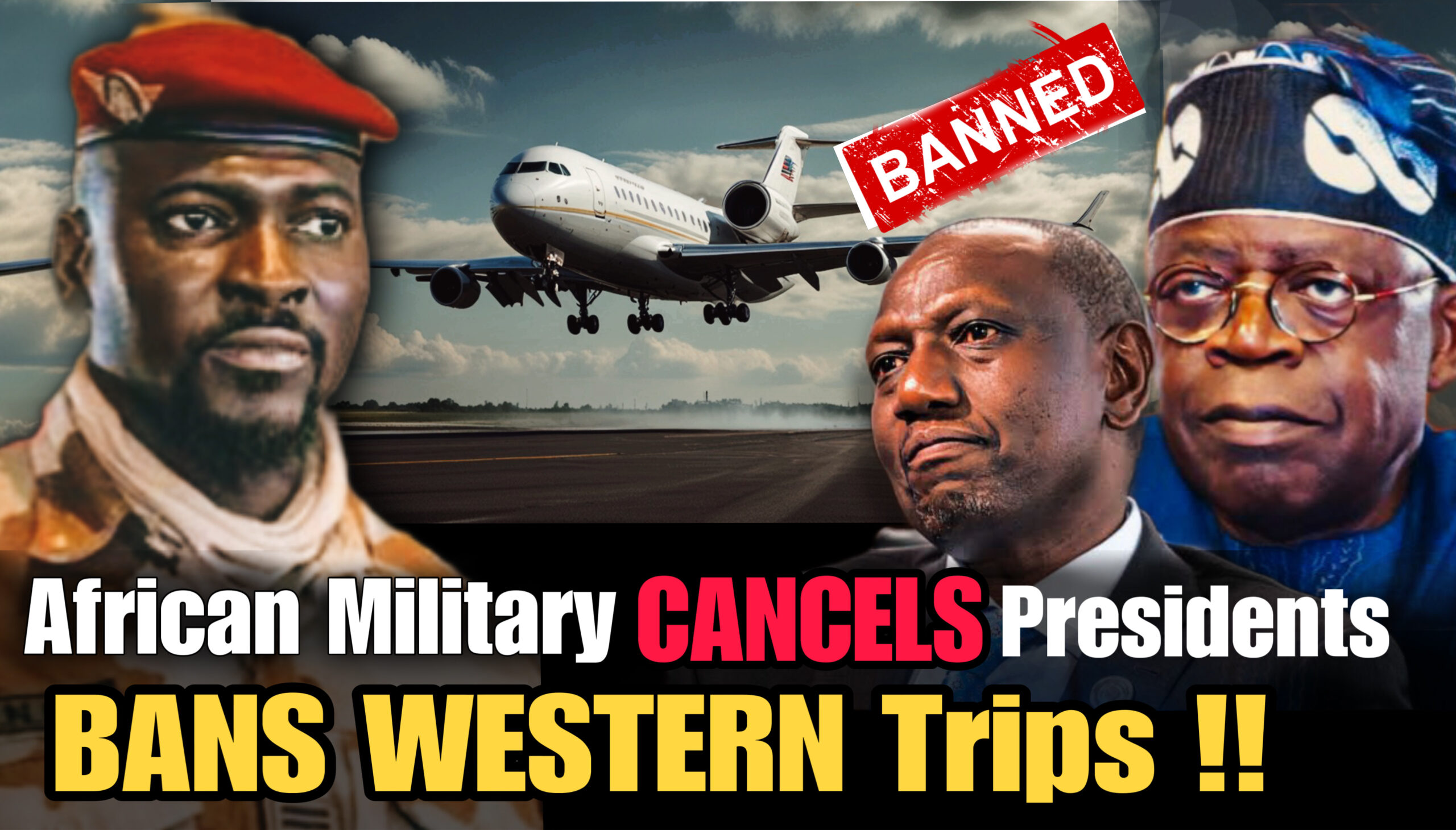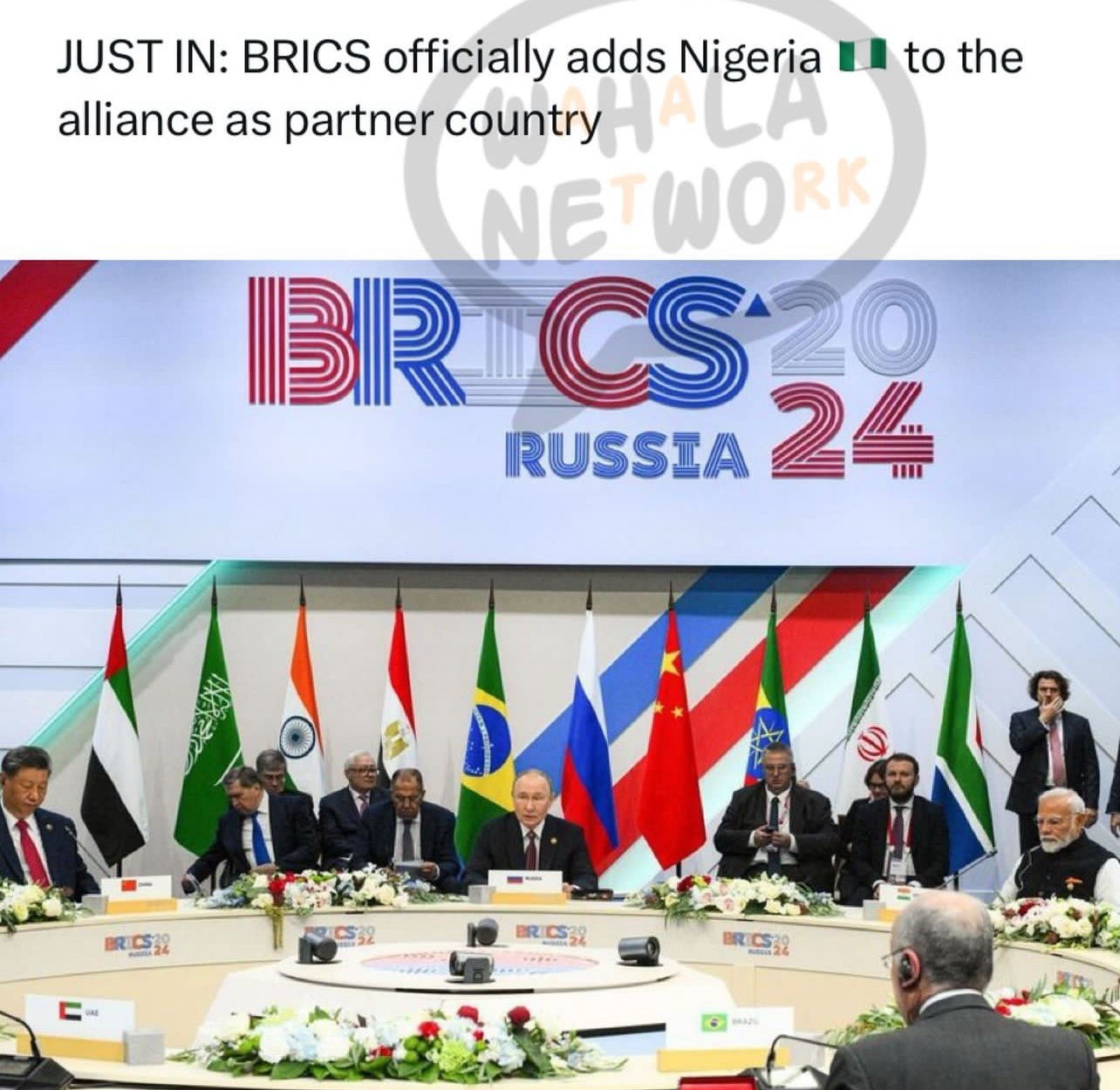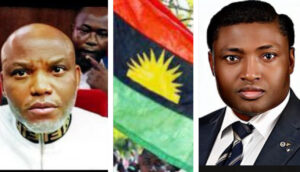Why African Leaders Must Be BANNED From Constant Western Travels ! Military Reacts
While their countries battle economic crises and insecurity, some African presidents are globe-trotting at an alarming rate. Leaders like Nigeria’s Bola Tinubu and Kenya’s William Ruto are spending millions on frequent trips abroad, but are these travels really benefiting their people? Critics call them “tourist-in-chief” and “flying presidents,” pointing out the enormous costs of these trips while citizens face poverty and inflation.
On this article, we uncover the staggering amount of money spent on presidential travel and ask whether it’s time to ground these frequent flyers for the sake of their nations’ progress.
Stick around as we dive into the shocking numbers, the criticism, and the pressing question—
Presidential trips abroad are nothing new, but in Africa, they’ve sparked intense debates. With the rise of “economic diplomacy,” these journeys are under scrutiny—are they truly necessary or just extravagant? Behind every trip, there’s a deeper story that reveals the shifting dynamics of domestic politics.
Leaders jetting across the globe have earned colorful nicknames from critics: “globetrotters,” “flying presidents,” and in the harshest terms, “absentee presidents.” These labels capture the frustration of those who see their leaders spending more time in foreign capitals than addressing crises at home.
While necessary to some extent, critics argue that many of these trips offer little value to struggling nations. These flights often take off at a time when countries face spiraling living costs and heightened insecurity, leaving citizens wondering: Are these travels really worth it?.
Consider Kenya’s William Ruto and Nigeria’s Bola Tinubu—two presidents frequently in the spotlight for their air miles. Both leaders have been criticized for their heavy travel schedules, especially as their citizens grapple with tough economic realities. Ruto, for instance, was dubbed the “Flying President” by a Kenyan newspaper, which questioned his enthusiasm for foreign trips amid mounting domestic issues.
In Nigeria, opposition leader Atiku Abubakar called out Tinubu as a “tourist-in-chief,” blasting his frequent European getaways while the country “drowns in insecurity.”
Of course, not all travel criticism is fair. Heads of state must attend high-level meetings and broker crucial diplomatic and economic deals.
Still, some wonder if certain trips are more for personal glory than national benefit, pointing to the late Tanzanian President John Magufuli, who famously never traveled outside Africa during his six-year tenure.
Foreign policy expert Prof. Macharia Munene strikes a balance, recognizing the importance of some trips but labeling others as “wasteful.” Ruto and Tinubu defend their journeys, saying they tackle the very problems critics accuse them of ignoring.
In Tinubu’s first 1 year, he embarked on 17 foreign trips—nearly two per month. Yet Ruto outpaces him, clocking around 50 trips since 2022—averaging more than three per month.
The question of necessity lingers as their travel bills pile up.
Ruto’s predecessor, Uhuru Kenyatta, made fewer trips, averaging just over one a month, and Nigeria’s previous president, Muhammadu Buhari, had a similar record. Still, the frequency of trips does not always correlate with days spent abroad, raising further scrutiny over their true purpose.
In late 2023, both leaders found themselves in Europe—Ruto attending the Italy-Africa summit, and Tinubu making yet another unexplained private visit to France. Tinubu’s trips, while frequent, are framed as efforts to attract investment. His office asserts that every trip signals Nigeria’s openness for business, with Tinubu personally telling investors that Nigeria is “ready and open.”
Ruto’s travel schedule has been even more relentless. Since his inauguration in 2022, he’s been on the move at least twice a month, traveling to Africa, Europe, and the U.S. for global events. In early 2024 alone, he has already visited Japan, the UAE, Uganda, and the Democratic Republic of Congo.
But it’s not just about how often they travel—it’s about the cost. Tinubu’s foreign and domestic travels in his first six months exceeded the budget by 36%, amounting to over $2 million.
In Kenya, Ruto’s office saw a 30% increase in travel expenses, with foreign trips accounting for millions. Both leaders justify these costs by pointing to the benefits: Tinubu claims his travels are vital for securing foreign investments, while Ruto argues his trips have created thousands of jobs for Kenyans abroad and secured billions in deals, including a recent $2.3 billion package after a trip to Japan.
Faced with growing criticism, both governments have taken steps to curb the spending of their officials. Kenya slashed the civil service travel budget by 50%, though this hasn’t slowed the president’s own flights. Similarly, Tinubu reduced his official delegation by 60%, though there’s been no sign of him scaling back his trips.
The controversy isn’t confined to Kenya and Nigeria. In the Democratic Republic of Congo, President Félix Tshisekedi faced criticism for his frequent trips during last year’s election campaign. In Malawi, President Lazarus Chakwera suspended all international travel due to the country’s economic woes.
Even Tanzania’s President Samia Suluhu Hassan, who succeeded John Magufuli, has been busy on the international stage, making numerous trips since taking office.
The following is a list of international presidential trips made by Samia Suluhu since assuming office.
In 2021, She made 11 official trips to 10 different countries, totaling 28 days of official business travel outside the country.
In 2022, She made 17 official trips to 15 different countries, totaling 58 days of official business travel outside the country.
In 2024, She made 19 official trips to 18 different countries, totaling 39 days of official business travel outside the country.
Leaders across Africa—from Uganda to Sierra Leone—are feeling the heat for their travel expenses. Newspapers have labeled some as “flying presidents,” suggesting that many of these trips, while perhaps justifiable on paper, may be out of touch with the struggles their citizens face daily.









Post Comment